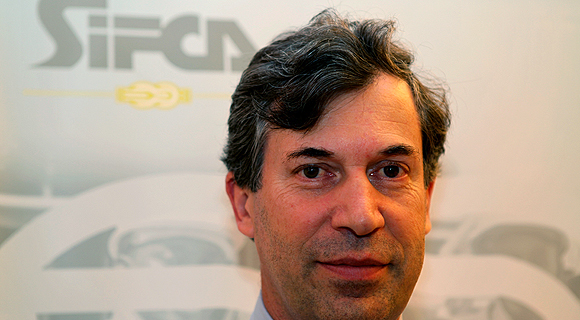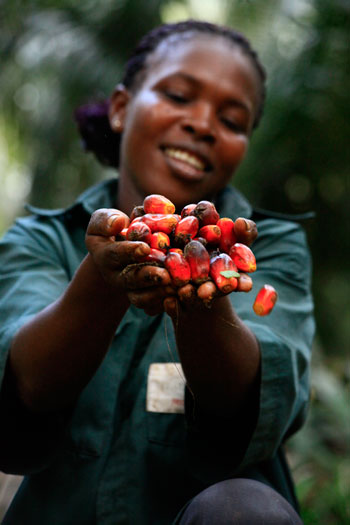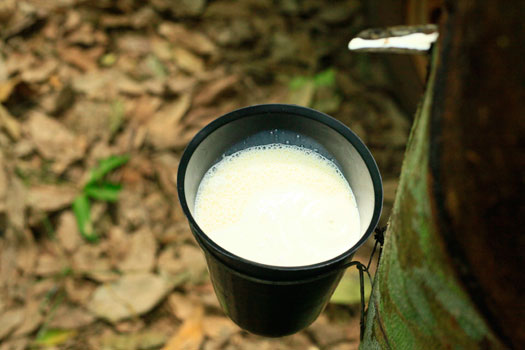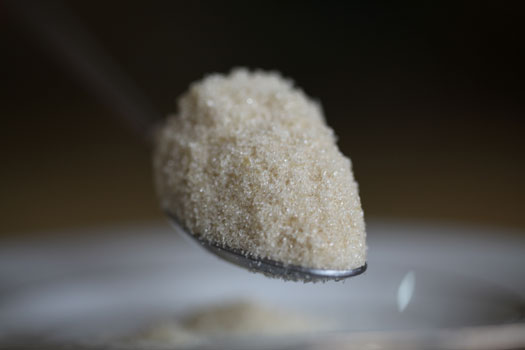Largest Agriculture Company in Côte d’Ivoire: Palm Oil, Rubber and Sugar
Bertrand Vignes, Chief Executive Officer of SIFCA – Biography
SIFCA is the leading company of the agriculture sector in Côte d’Ivoire. Côte d’Ivoire is the largest producer of cacao in the world and an important producer of other strategic agricultural commodities such as rubber, sugar and palm oil among others. Agriculture will become the main engine of socio-economic development of the country.
Interview with Bertrand Vignes, Chief Executive Officer of SIFCA

The World Bank ranks Côte d’Ivoire 169 out of 183 in ease of doing business. What is your personal experience and how easy is to do business in Côte d’Ivoire?
This year proved to be a little difficult for us Côte d’Ivoire, due to the post-electoral crisis. The country has literally come to a standstill. With the recent improvements in security, the business environment is slowly improving. Côte d’Ivoire has massive economic potential of Côte d’Ivoire and the growth in 2012 will convince critics that Côte d’Ivoire is thegrowth engine of ECOWAS (Economic Community of West African States).
Côte d’Ivoire is a good match for SIFCA and it has high potential. Although it is very different from Asia or South America, the company is certain that with better infrastructure, the economic gap will disappear. SIFCA has faith in the future.
SIFCA believes in agriculture and in Côte d’Ivoire… The country’s potential coupled with favourable economic conjuncture will help agriculture be the engine of the country.
According to Jim Rogers, a commodity bull, the price of sugar will double or triple within the next few decades. From the company`s viewpoint, what is the outlook of agriculture and commodities in general?
SIFCA believes in agriculture and in Côte d’Ivoire, however, one must be careful when talking about the prices of commodities. SIFCA knows that prices fluctuate in the short term, but the company must also think about the long term. When it comes to food and agricultural commodities, returns on investments might be lucrative, but there is another side of the story. We have to remember that people eat food and a sudden rise in food prices can have disastrous social consequences; people need to be fed, so there should be sophisticated price-control mechanisms and monitoring in order protect the people from the adverse effects of food price spikes. For SIFCA, one of the main objectives is to reduce the price of production as well. 
Côte d’Ivoire relies on agriculture, which accounts for 28% of its GDP, as a primary source of revenue. Could agriculture contribute to the social development of Côte d’Ivoire?
The legacy of Houphouet-Boigny is notable in the agriculture sector, which he built with a lot of great farmers. Now that the crisis is over, Ivorians will be able to develop much faster due to the agriculture sector. Côte d’Ivoire is the largest producer of cocoa and an important producer of other strategic agricultural commodities such as rubber, palm oil, etc. Many jobs can be created in these fields. The countries’ potential coupled with favourable economic conjuncture will help agriculture be the engine of the country.
SIFCA is one of the leading companies in Côte d’Ivoire. What is your responsibility towards society?
SIFCA plays an extremely important role in the sense that it directly employs as many as 25,000 people directly in the country. SIFCA’s partners, numbering between 50 and 60 thousands, are the out-growers and suppliers to its factories. But it’s more than just a simple transactional relationship. SIFCA cares about its suppliers and provides local farmers with technical support, assistance, and know-how.
In what way does the company prepare for a potential downturn and what is the business development strategy in the long term?
SIFCA is aware of price fluctuation. The company’s strategy is simple; when prices are low, SIFCA`s investment expenditures dwindle and when prices are high, the company invests more. This happened with rubber production. Currently, there is a business opportunity in palm oil. Since prices are high, SIFCA is investing in the mills in order to reduce costs and maximize benefits. Another cost-optimizing strategy is to have better yields. SIFCA is replanting palm oil trees with new varieties of seedlings to improve results. The best strategy to prepare for a possible downturn is to invest and improve productivity when the conditions are favourable and to simultaneously reduce costs.
Experts estimate that the agricultural sector of Côte d’Ivoire will record a negative growth of – 7% for 2011. Despite that statistic, SIFCA is increasing its production of sugar, oil, and rubber. What are the growth targets for SIFCA?
SIFCA’s strategy is to grow not only in Côte d’Ivoire, but also in Nigeria, Ghana, and Liberia, where SIFCA produces rubber. One of SIFCA’s objectives is to produce palm oil in the aforementioned countries as well. To summarize, while SIFCA wants to extend the scope of its activities in Côte d’Ivoire, we are also planning to grow in the sub-regions. SIFCA is divided into 3 divisions: rubber, palm oil, and sugar. Sugar represents 10% of the group’s turnover while palm oil represents 36% and rubber represents 54%. The plan is to balance the production of palm oil and rubber and to reduce the gap between the two products.
How does SIFCA compete with cheap palm oil coming out of Asia?
The post-electoral crisis has crippled the economy. The borders in the ECOWAS region are no longer protected, which allows smuggling of cheap Brazilian sugar and cheap palm oil from Asia. The smugglers do not pay any taxes, import duties, or tariffs, making it very hard to be competitive. The governments are trying to secure the borders to prevent smuggling but the effects are yet to be seen.
The problem has been resolved in Senegal but still lingers in Nigeria. Selling palm oil is very difficult. That’s why it is very important to the company that rules are respected within the ECOWAS and the sub-region.

Sunny Varghese, CEO of Olam International, confirmed group investment plans for Côte d’Ivoire. What does it mean for the country and how are the companies going to collaborate for palm oil production?
Wilmar and Olam are our shareholders and partners. Wilmar is a specialist in palm oil production and adds technical support and familiarity to the partnership. Asia has an edge on production and leads the industry’s best practices. SIFCA built the most modern refinery in Africa – the biggest in Africa – and Wilmar contributed greatly to that accomplishment. Ola specializes in trade and has invested in many businesses. They help our company sell its products. The relationship is very fruitful and SIFCA feels privileged to work with them and have their support.
What is the strategy for rubber and sugar?
In 2012, SIFCA wants to extend its activities in the ECOWAS and develop its production of palm oil. Right now the company has three different activities – a minor one (sugar) and two major ones (palm oil and rubber). The company will study all the possibilities in the agricultural sector in order to further diversify its activities.
Can you tell us more about the Outgrow program and SIFCA’ s constant interest in the CRS?
The company itself is sustainable development. SIFCA’s activities are at the heart of economical, social, and environmental development in the region. SIFCA plants trees, which contributes to capturing carbon dioxide. What we do is rational occupation of land with extremely high performance and productivity. This creates a lot of jobs for the people, but that’s not all.
60% of SIFCA’s production comes from out-growers. They didn’t spontaneously decide to plant, rather, they planted because they were supported by a company who gave them plants and helped them transform their production into products. For this reason, SIFCA values its relationship with out-growers and this is what SIFCA is focusing its development on.

The best social act the company can have in relation to the environment, to the communities, and to the people around SIFCA is to give them what they need to produce. This is the basis of SIFCA’s work. Of course, we must also consider improving infrastructures. When economical development occurs, there are improvements on the roads, in the schools, and in the health sector. SIFCA is not here to take the government’s place, but its job is to help create those infrastructures because that is what the country lacks.
A few months ago, your company was faced with a tragic event that left everyone quite shaken. Would SIFCA like to say something about this?
Indeed, these past few months were incredibly dark times for us because of the disappearance of Yves Lambelin. He was a dynamic figure who always had fantastic energy and was one of the key founders of SIFCA. He drew the outline of the company and thus created SIFCA as it is today. This tragedy is heart wrenching for all of us who were not only his colleagues, but also his friends. Those are the feelings of everyone in the company. The same goes for Pandian, manager of the refinery which he built with Yves Lambelin, and also Raoul Adeossi, Lambelin’ s assistant. The disappearance of these three important people is a tribulation that SIFCA has to overcome by modeling its work to follow the path that Mr. Lambelin traced for our company.